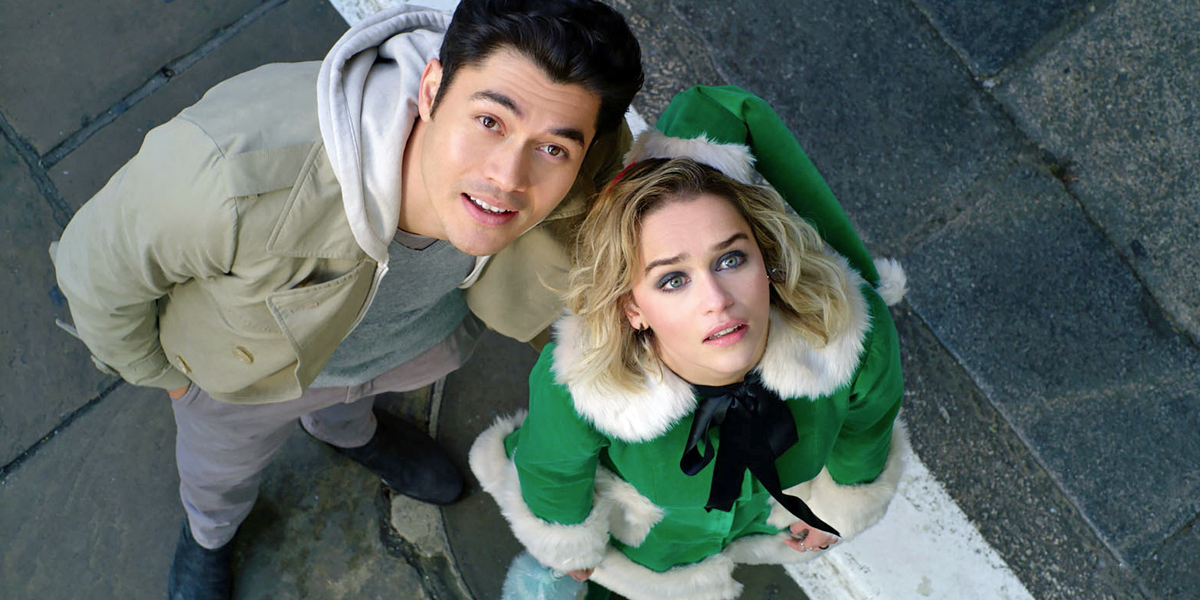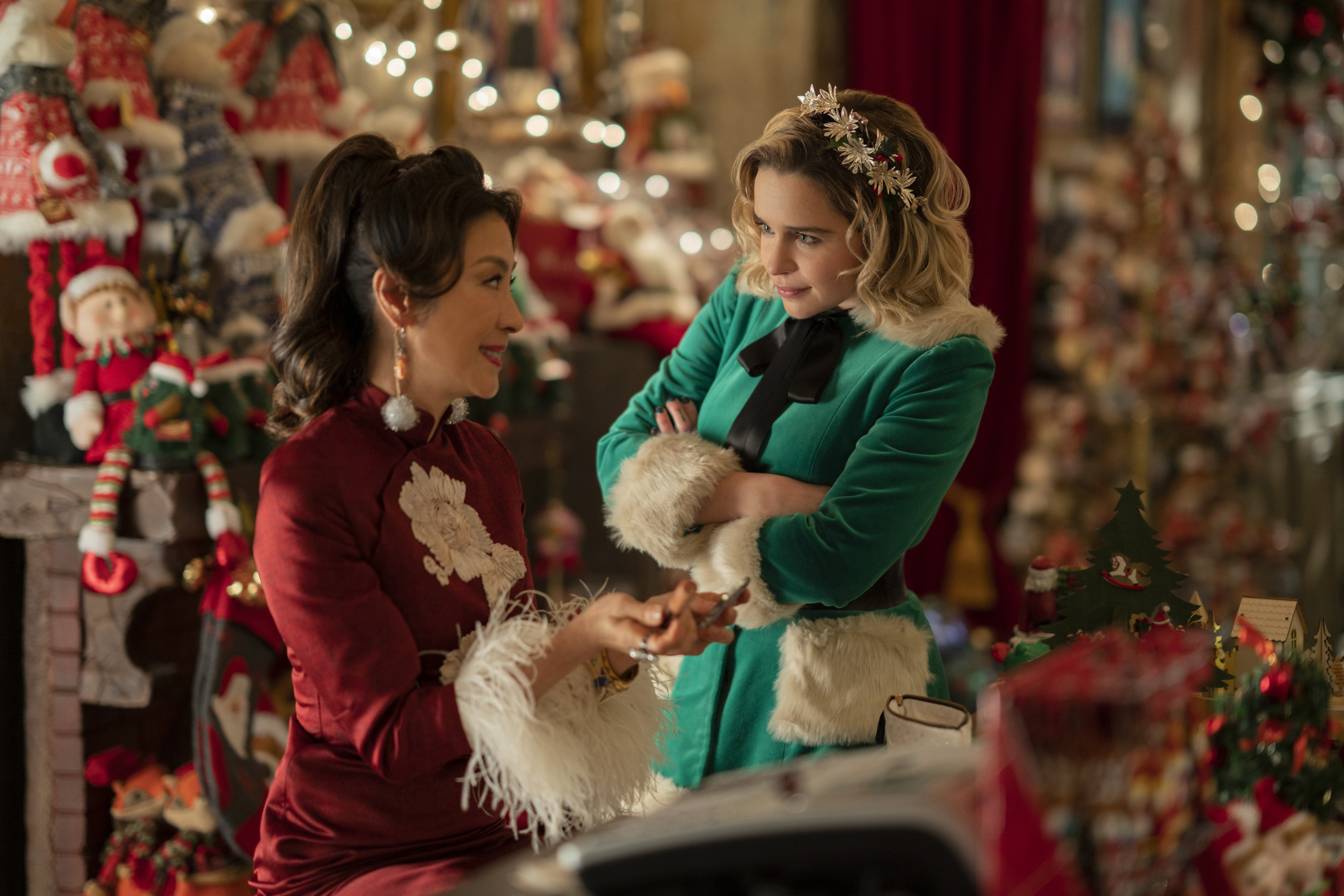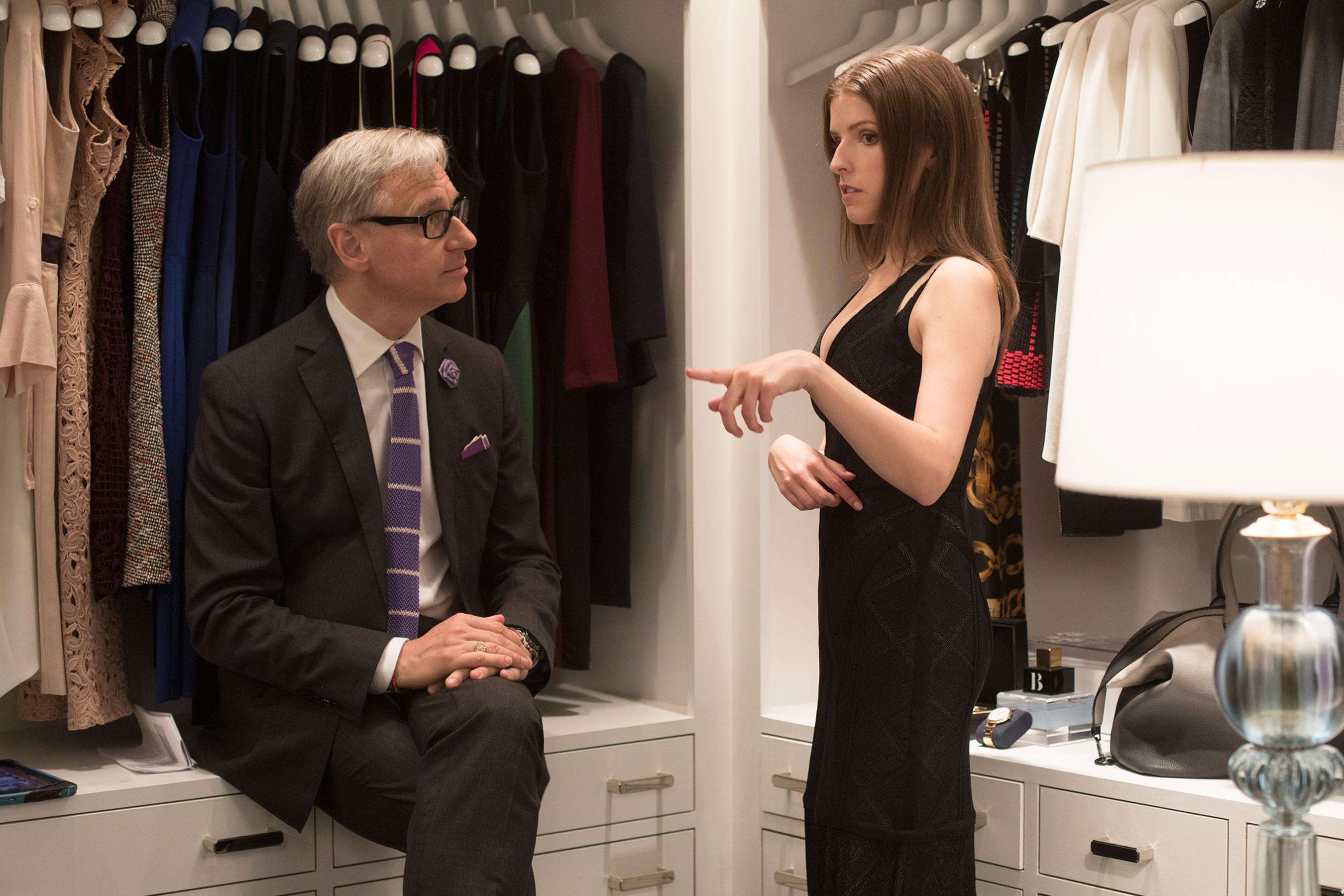It’s ironic that one of the names we think of when it comes to bringing some of the finest female talent to the screen is a man, but director Paul Feig is obviously no ordinary man. He’s quite up front about how he’s always understood and been drawn to girls and women, even as a boy himself, and while Hollywood executives were wringing their hands about making their movies appeal to all four quadrants (apparently staunch in their belief that female comedies would never sell) Feig realised something it seemed to take them forever to catch up on. Women can be very, very funny.

With muses like Melissa McCarthy and Kirsten Wiig, Feig became the go-to guy for funny movies starring some of the finest female comic talent around, the same way M Night Shyamalan became the twist guy or Michael Bay became the guy who blows everything up.
His latest film Last Christmas seems like an altogether different beast… until you realise it’s not. His heroine Emilia Clarke – at odds with the persona we most know her from as the Mother of Dragons – is every bit as watchable and funny as Wiig, McCarthy and their contemporaries.
Feig spoke to Moviehole.net from London about what he saw in Clarke, being the ‘funny woman’ guy and the hate mail he still gets over his Ghostbusters reboot…
It’s been said online you didn’t want to do a holiday movie but the script by Emma Thompson [who plays Kate’s – played by Emilia Clarke – mother] convinced you.
It was just so well written and emotional and I loved the lead character. I love how challenging she was and how she wasn’t a standard well-behaved female character. Male characters have been allowed to come into a movie being crazy and frustrating and doing all these crazy things, and everybody goes along with it. But if it’s a woman being like that you’re like ‘oh, she’s unlikable’.
Kate was possibly going to be frustrating for an audience but she’s three dimensional. And I loved the emotional journey and the issues the script touched on, but they were all in service of character. You know, there’s no political motivations behind the script other than showing how political movements affect people.
She’s a little more relatable too because in being so klutzy and disorganised, she’s more like one of us.
Yeah, that’s exactly it. It’s kind of a Scrooge story and she’s kind of a modern day Scrooge, not liking Christmas and making mistakes and being mad at everybody. She rediscovers who she really is.

We’re used to seeing Emilia cavort with dragons with a sense of poise and a lot of power and darkness. Kate’s completely different. What made Emilia right to play her?
I met her about four years ago and I was so surprised at how funny she was, just this delightful energy, and I became obsessed with wanting to show that. I walked out of that meeting going ‘I have to get her in a comedy’ but it wasn’t really until I found this script I realised it was the role that can showcase everything Emilia can do.
There’s an interesting visual mood, the London setting has a real storybook, fairytale quality. How did the cinematography and set design contribute?
I wanted to make this a beautiful movie. I wanted to make it magical in the way that I see London when I go all the time, especially when I’ve been there in the holidays. I feel like a lot of times London gets portrayed as being very gray and colourless, and that’s not the one I know when I walk around, my eye goes to the bright colors and bright lights.
My cinematographer John Schwartzman went to film school together but this was the first time we actually worked together professionally. I knew he’d be able to bring the aesthetic I wanted but what we found is when we shot in Regent Street and Piccadilly Circus and those really populated areas was that we weren’t able to bring in a lot of outdoor lights, so we had to light it with available lighting and a few smaller kind of battery operated handheld lights.
That all gave us this very natural glow. What you see on the screen is sort of what you see when you walk down the street at Christmastime there and I think that kept it from feeling phony but made it very beautiful in its reality. I’m so happy with how it worked.
There’s a scene where Kate and Tom [Henry Golding] kind of connect for the first time as they’re putting decorations on the Christmas trees upstairs in Santa’s [Michelle Yeoh] shop. That scene is entirely lit by those little fairy lights on the tree. We got this kind of Kubrickian glow to everybody that just makes it so warm and lovely.
You’re known for your female-driven comedies, this is more in the mould of a traditional rom-com. Was it because you wanted to prove you could do stuff other than female comedy ensembles?
No, it was really just the script. I really responded to the character of Kate and how she’s not fixed by a man. She meets up with a man who’s very interested in her and takes her on almost like a project but then he kind of comes and goes so much, leaving her on her own to start to fix her own life. At the end of the day this is about a woman who actually fixes herself and so that felt very separate from the standard rom com thing where she meets the perfect guy so her life is better.
It does still showcase the fact that you’re drawn to great actresses and great roles for women though. Is doing that instinctive or did you at any stage decide to just be more representative?
It’s just what I always wanted to do. I’ve always loved female characters and great actresses on screen, I grew up watching the movies of the 30s in the 40s where the men and the women were equals. I always just loved all those women like Katharine Hepburn and Rosalind Russell, all those really funny strong women. Then when I watched modern day movies even from when I was a teenager the women are all just being foils or obstacles or goals or objects of desire, they weren’t reflective of the women I’d seen on screen before that or the women I knew in my life.
Most of my friends were girls and women. I was an only child and was close with my mother and just always wanted to tell their stories. I didn’t really relate to other guys, to me they were just wanting to make homophobic insults and punch each other. I always wanted to kind of flee from them over to either my nerdy friends or all the girls I was pals with, we just had much more fun making each other laugh.

You’ve also proven yourself in different media [Feig is a prolific TV director]. Is directing directing whatever the canvas or do you have to adjust the skillset and flex different muscles?
You’ve got to match the medium to the style. Some things are more amped up or more presentational – look at a show like 30 Rock. That’s very funny, but it’s kind of a modern day vaudeville style of bigger performances. Then you look at The Office which is very behavioural, the characters are doing very extreme things but we’re playing it very deadpan. I’ve worked on other shows that were different again like Nurse Jackie or Arrested Development, which was somewhere between heightened and real.
When we did Freaks and Geeks I’d have directors come in who’d want to change the style and you’d say ‘no, you can’t because it needs to be this tone’. So I learned as a director that all you do is make sure you have consistent tone. That’s the most important thing because the minute you break that tone or it gets changed in the middle of a movie the audience goes ‘wait, what the heck’s going on?’ and you lose them.
Because we think of you as a comedy director, but A Simple Favor wasn’t strictly a comedy.
I just love genres, I’ve trying to work my way through all my favourite directors, Howard Hawks, gangster movies, westerns, screwball comedies. Maybe it comes from having been a TV director for so long and jumping around to different fields and genres and shows. With A Simple Favor, I love thrillers, they’re probably my favourite movies to watch, but I wouldn’t have done that movie if it didn’t have a character I thought was funny and relatable in the middle of it.
That was Anna Kendrick’s character, because she’s such an underdog and kind of a nerd and that was what I latched onto – what if somebody like that had to go through this crazy setup, getting gaslit and all that? So that’s how we were able to find the comedy. We didn’t sell it as a comedy but we cut it and put it together as a comedy and whenever we would screen it we got giant laughs in all the right places.

All the ridiculous sexist trolling online aside, were you surprised or disappointed by the critical reception to Ghostbusters ?
It was weird. We were certified fresh on Rotten Tomatoes but there were the ones who really were mean about it. I always felt like we were kind of the canary in the coal mine on that one, because I think we just shocked everybody by the fact that we gender-flipped that movie. I got accused by so many people of being a social justice warrior, bullshit like that, and it’s just like ‘no, look at my work, all I do is work with funny women’ Those are the people I know.
But people bought a lot of expectations to that movie, some wanting it to be way more than it could ever possibly be and some just coming in ready to hate watch it no matter what it was going to be.
But all these things rehabilitate themselves eventually and the moment it became clear to me that it was the right thing to do was when we won the Kids Choice Award for Best Feature Film, up against Captain America and one of the Star Wars movies.
After getting yelled at for three plus years by middle aged guys saying ‘thanks for ruining my childhood’ it turned out maybe we made a few actual childhoods of actual children. So I’ll never apologise for it and I’m very proud of it, but I still get email – I actually got one today, someone got hold of my email address and said some scathing thing. I was like ‘wow, really? It’s been over three years, you gotta move on!’
What’s your take on this director pile-on about Marvel and superhero movies, Martin Scorsese saying they’re not really cinema, etc?
Look, any movie that entertains an audience is a valid movie. I know a lot of those people that make those movies and they’re true filmmakers and artists and they love cinema, they bring real emotion and character to these stories. Anything to bring people into theatres and make them happy and make them have a good time. A movie is a movie and as long as they’re good that’s all I care about.
Subscribe to FIB’s newsletter for your weekly dose of music, fashion and pop culture news!






